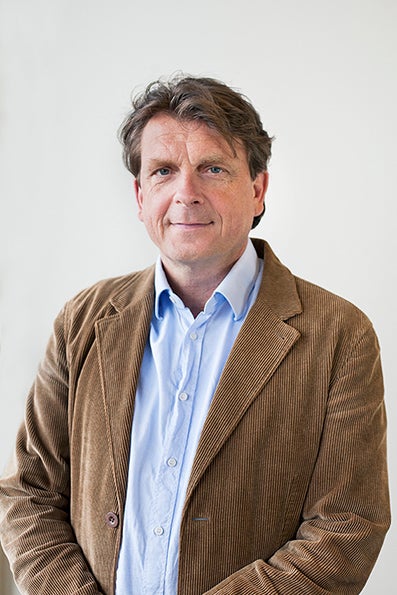The Department of Art & Culture, History, and Antiquity houses an international team of 110 researchers and teachers with a shared ambition in teaching and developing scholarship in these fields. Burgers is a professor in the department in addition to head of department. His chair concerns the history and heritage of cultural landscapes and urban environments. His teaching, research and valorisation activities are at the interface between archaeology, history and the way we give the past a place in spatial planning today. In doing so, he has specialised in Italy and the Mediterranean world. In southern Italy, for instance, he is scientific director of the archaeological landscape park Muro Tenente, which is part of the Unesco World Heritage Site of the Via Appia. Together with Italian colleagues, governments and citizens, he designs that park and brings it to life.
Career
Before becoming head of department, he was director of CLUE+, the VU research institute for Culture, Cognition, History and Heritage (2015-2023), director of the Royal Dutch Institute in Rome (2012-2013) and head of the Heritage Studies Departments of the same institute (2006-2013). For most of his academic career, Burgers has focused on urban and rural landscape studies and heritage design (both conceptual and applied). He recently received a prestigious €4 million EU grant (Marie Curie) to lead an international training network, which brings together an interdisciplinary group of researchers with 25 academic, public and private partners to employ 15 PhD researchers across Europe, all working on heritage and spatial design. Burgers has built an extensive (inter-)national network of researchers and stakeholders from different disciplines and sectors, and strongly advocates a policy of social anchoring as a key strategy for heritage and design studies.
Career at Vrije Universiteit Amsterdam
In 1992, he started a PhD at Vrije Universiteit Amsterdam on an archaeological landscape topic in southern Italy completed in 1998. From 1994, he was allowed to combine that with a part-time job as UD Mediterranean Archaeology at VU Amsterdam. At that time, he started a series of excavations and systematic landscape research (surveys) in the southern Italian region of Salento, following the fieldwork previously set up here by his colleagues Boersma and Yntema. That fieldwork has become an internationally recognised and long-term regional project. In the process, he transformed one of the excavation sites from the VU into a landscape park. The park was declared part of the Unesco World Heritage Site of the Via Appia in 2024.
What do you hope to contribute to the new faculty?
"I would like to build bridges between the Humanities and the other fields of science. I define my research, teaching and administrative commitment in terms of societal challenges and impact, concerning inclusiveness, socio-economic equality and sustainability; to achieve this, a disciplinary approach is too limited and an inter- or transdisciplinary approach is necessary. Heritage, history, culture and, in a broader sense, the Humanities are my fields of study in this respect, but always in close connection with other fields of science and disciplines. I see building bridges between them as a necessary condition for a responsible approach to social issues. The new faculty offers excellent opportunities for this."
